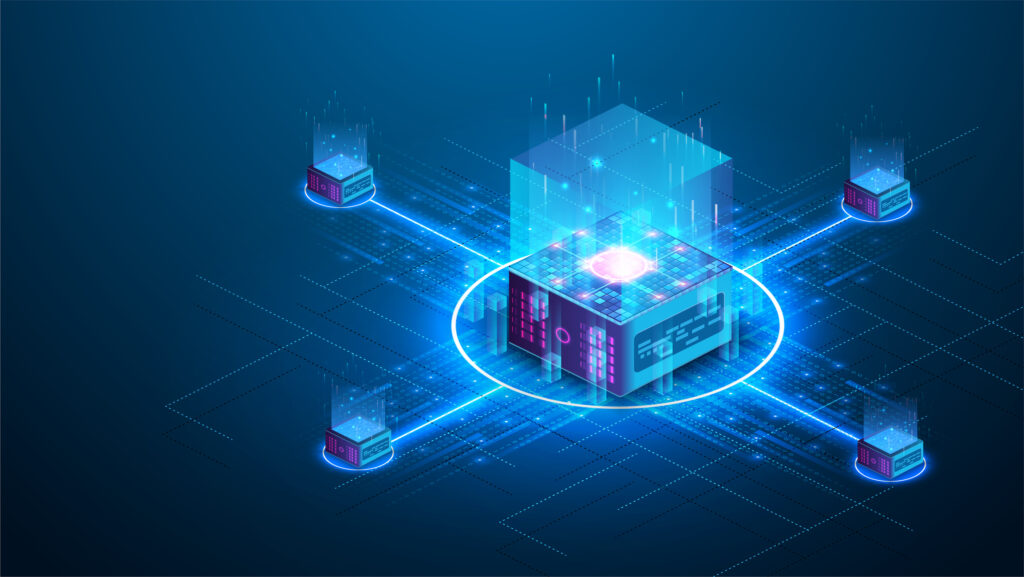Table of Contents

In meteorology, weather prediction relies on processing vast amounts of atmospheric data, including temperature, humidity, wind patterns, and ocean currents. Before the advent of High-Performance Computing (HPC), weather forecasts were often inaccurate beyond a few days due to the limitations of computational power. However, modern HPC clusters allow meteorologists to run sophisticated numerical weather models that analyze real-time sensor data and simulate climate patterns with remarkable accuracy. For example, during hurricane season, HPC-driven simulations help predict storm paths, enabling early evacuations and potentially saving thousands of lives. Without the parallel processing power of HPC clusters, these real-time weather predictions would take far too long to be actionable, highlighting the crucial role of HPC in forecasting and disaster preparedness.
HPC clusters have therefore become an essential backbone for industries and research fields that require massive computational power. Unlike traditional computing environments, which rely on single-node processing or cloud-based virtual machines for general-purpose tasks, HPC clusters are purpose-built for parallel processing, scalability, and efficiency. These clusters enable organizations to tackle complex simulations, AI model training, large-scale scientific computations, and other high-demand workloads that traditional systems simply cannot handle efficiently.
This article explores the architecture of HPC clusters, their management challenges, and the various use cases that highlight their critical role in modern computing.
How HPC Clusters Differ from Traditional Computing
HPC clusters distinguish themselves from traditional computing environments in several fundamental ways, primarily in terms of architecture, processing power, and workload execution. Some of the key differences include:
- Parallelism and Processing Power: Traditional computing systems, such as desktops, laptops, and general-purpose servers, are designed for sequential processing and general workloads. In contrast, HPC clusters are built for massive parallelism, where thousands or even millions of processing cores work together to solve complex computational problems. These clusters leverage specialized interconnects, optimized storage solutions, and distributed computing frameworks to achieve superior performance.
- Workload Distribution and Management: Traditional computing typically relies on a single processor or a small number of processors executing tasks sequentially, whereas HPC clusters distribute workloads across multiple nodes to maximize efficiency. Advanced job scheduling and resource management systems ensure optimal utilization of compute resources, minimizing idle time and maximizing throughput.
- Networking Capabilities: HPC clusters prioritize high-speed, low-latency networking, using technologies like InfiniBand and NVLink to facilitate rapid data transfer between nodes. Traditional computing environments, on the other hand, often use standard Ethernet connections, which may introduce latency and bandwidth limitations.
- Storage Performance: HPC storage solutions are built for high-throughput access, with parallel file systems such as Lustre and GPFS enabling efficient data handling at scale. In contrast, traditional computing environments typically rely on conventional disk storage systems that may not meet the demands of data-intensive applications.
- Scalability and Adaptability: HPC clusters are designed with scalability in mind, allowing organizations to add or remove compute nodes as workload demands change. This adaptability is crucial for research institutions, enterprises, and AI-driven applications requiring dynamic resource allocation. Traditional computing systems, while capable of some level of scaling, often lack the infrastructure and resource distribution capabilities needed for large-scale scientific simulations, machine learning training, and other intensive computations.
The Role of Parallel Processing in HPC Clusters
Parallel processing is the cornerstone of HPC clusters, enabling them to break down large computational tasks into smaller subtasks that run concurrently across multiple processors. This approach significantly reduces execution time and enhances performance.
Common parallel processing techniques in HPC include:
- Task parallelism: Different processors handle separate tasks within a workload.
- Data parallelism: A dataset is divided into smaller chunks, with each processor handling a portion of the data.
- Hybrid parallelism: A combination of task and data parallelism to optimize resource utilization.
More specific information on parallel processing models can be found in the “Paralell Computing Models and Workload Distribution” section below.
Core Components of an HPC Cluster
An HPC cluster consists of several key components, each playing a crucial role in its overall performance:
- Compute Nodes
Compute nodes form the processing backbone of an HPC cluster. These nodes typically contain multiple CPUs or GPUs optimized for parallel computation. Modern HPC clusters often leverage high-performance GPUs such as NVIDIA H100, H200, and GH200, which provide significant acceleration for machine learning and scientific computing workloads.
- Storage Infrastructure
HPC workloads require robust and efficient storage infrastructure to handle vast amounts of data. Parallel file systems such as Lustre, GPFS, and BeeGFS enable distributed high-speed data access across multiple compute nodes, ensuring low-latency read and write operations. For ultra-fast local storage, many HPC clusters incorporate NVMe-based storage solutions, which provide rapid access to critical datasets and temporary computational data. Additionally, object storage solutions offer scalable and cost-effective data retention, making them a viable choice for long-term archival and non-critical storage needs.
- Networking
The networking backbone of an HPC cluster is designed to minimize latency while maximizing data transfer speeds. InfiniBand is a widely used technology in HPC environments, offering high bandwidth and low-latency interconnects essential for performance-sensitive applications. Some clusters adopt high-speed Ethernet, such as 100GbE or higher, to balance cost and performance. Furthermore, within compute nodes, technologies like NVLink and PCIe enable rapid communication between GPUs and other hardware components, optimizing intra-node data movement for computational efficiency.
HPC Cluster Management
Effectively managing an HPC cluster requires a combination of administrative expertise, efficient resource scheduling, and proactive monitoring. Given the complexity of these environments, administrators must balance performance optimization, workload distribution, and security measures to ensure seamless operation. HPC cluster management involves handling various challenges, such as hardware failures, job scheduling conflicts, and power efficiency while maintaining high availability and reliability.
Challenges of Managing an HPC Computing Cluster
Managing an HPC cluster presents numerous challenges due to the complexity of hardware, software, and user demands. Efficiently coordinating thousands of compute nodes while ensuring peak performance requires robust administrative strategies. Cluster administrators must deal with hardware failures, network congestion, job scheduling conflicts, and software dependencies. Additionally, power consumption and cooling requirements must be managed carefully to maintain an energy-efficient and cost-effective system.
Importance of Workload Scheduling and Resource Allocation
Workload scheduling and resource allocation are fundamental aspects of HPC cluster management. Effective job scheduling ensures that computational resources are utilized efficiently, preventing bottlenecks and idle nodes. Tools such as Slurm, PBS, and Grid Engine are commonly used to manage job distribution across nodes. Resource allocation policies must balance priority access for high-impact research while maintaining fair usage among multiple users. Dynamic scheduling techniques help adjust workloads based on system demands, optimizing overall cluster performance.
Security and Monitoring in HPC Cluster Management
Security is critical in HPC clusters, where sensitive research data and computational workloads require protection from unauthorized access and cyber threats. Implementing access controls, authentication mechanisms, and network segmentation helps safeguard the cluster from malicious attacks. Regular monitoring is equally important to detect anomalies and prevent failures. Monitoring tools such as Prometheus, Ganglia, and Nagios provide real-time insights into node performance, workload efficiency, and potential issues, allowing administrators to respond proactively to system failures and security incidents.
Parallel Computing Models and Workload Distribution
HPC clusters rely on various parallel computing models to distribute workloads efficiently. These models ensure that computational tasks are effectively divided and executed across multiple nodes, maximizing throughput and minimizing execution time. Different models cater to various workload structures, balancing factors such as communication overhead, memory access patterns, and computational intensity.
| Parallel Computing Model | Description |
| Message Passing Interface (MPI) | Facilitates communication between nodes in distributed computing environments. It is commonly used for large-scale simulations and scientific computing applications where processes run across multiple physical nodes. |
| OpenMP | Supports multi-threading within shared-memory architectures. It is widely used in applications that require fine-grained parallelism, such as numerical simulations and real-time data analysis. |
| CUDA and OpenACC | Used for GPU acceleration and optimized parallel computation. CUDA is specifically designed for NVIDIA GPUs, enabling massive parallel execution of threads, while OpenACC provides a high-level abstraction for accelerators, making it easier to port applications across different hardware platforms. |
| Hybrid MPI/OpenMP | Combines message passing (MPI) with multi-threading (OpenMP) to optimize performance across distributed and shared-memory systems, improving scalability in heterogeneous HPC environments. |
| Data Parallel Processing | Distributes large datasets across multiple processing units to execute computations simultaneously, often used in machine learning and large-scale analytics. |
These models allow HPC clusters to handle complex workloads by optimizing task execution, minimizing bottlenecks, and efficiently managing computational resources.
HPC Cluster Management Software

Managing an HPC cluster requires specialized software to handle job scheduling, resource allocation, monitoring, and system administration. Popular HPC cluster management software provide automation tools that streamline operations and improve efficiency. Many of these solutions support workload orchestration, user authentication, fault detection, and scalability enhancements to ensure optimal cluster performance.
Features to Look for in an HPC Cluster Management Solution
An ideal HPC cluster management solution should offer robust scheduling capabilities, automated workload balancing, and real-time monitoring. Scalability is a crucial factor, ensuring that the software can handle growing computational demands. Security features, such as role-based access control and encrypted communication, help protect sensitive data and computational workloads. Additionally, ease of integration with existing HPC software stacks, support for containerization, and detailed logging and reporting functionalities are valuable features for efficient management.
Comparison of Open-Source and Commercial Options
| Feature | Open-Source Solutions | Commercial Solutions |
| Cost | Generally free to use | Requires licensing and subscription fees |
| Customization | Highly customizable with access to source code | Limited customization due to proprietary nature |
| Support | Community-driven support with forums and documentation | Dedicated customer support and professional services |
| Ease of Use | Requires technical expertise to deploy and maintain | User-friendly interfaces with guided setup |
| Scalability | Flexible but may require additional configurations | Designed for seamless enterprise scaling |
| Security | Security depends on user configurations and updates | Built-in enterprise-grade security features |
When selecting an HPC cluster management solution, organizations must choose between open-source and commercial software. Open-source solutions offer flexibility, transparency, and cost-effectiveness, allowing users to customize the software according to their needs. However, they often require significant expertise to deploy and maintain, and support may be limited to community-driven resources.
On the other hand, commercial solutions provide dedicated customer support, enterprise-grade features, and comprehensive documentation, making them suitable for organizations that require reliability and ease of use. The trade-off between customization and vendor support is a key consideration when deciding between open-source and commercial HPC management solutions.
Scalability Considerations in HPC Cluster Architecture
Scalability is a key factor in designing an HPC cluster, ensuring that computational resources can expand or contract based on workload demands. Important considerations include:
- Load balancing: Ensuring an even distribution of workloads across compute nodes to prevent bottlenecks. Effective load balancing strategies leverage scheduling algorithms that dynamically allocate jobs based on node availability and resource utilization.
- Fault tolerance: Implementing redundancy and checkpointing mechanisms to handle node failures gracefully. Techniques such as replication, distributed file systems, and error correction strategies enhance cluster resilience.
- Elasticity: Designing clusters to scale dynamically, often leveraging cloud-based HPC solutions for hybrid scalability. Autoscaling mechanisms adjust computational resources automatically, optimizing performance while minimizing costs.
- Energy efficiency: Optimizing power consumption with advanced cooling technologies and energy-efficient hardware components. Using dynamic voltage scaling, liquid cooling systems, and optimized job scheduling reduces power usage without sacrificing performance.
- Interconnect scalability: Ensuring that networking infrastructure supports increasing workloads is crucial for cluster expansion. High-bandwidth interconnects such as InfiniBand and NVLink enhance communication efficiency, reducing latencies and improving overall system performance.
- Software scalability: HPC software, including job schedulers and workload managers, must be designed to handle a growing number of nodes and users. Scalability-aware middleware and orchestration tools help manage large-scale clusters effectively.
- Hybrid cloud integration: Many organizations are adopting a hybrid approach, combining on-premises HPC clusters with cloud-based resources. This strategy enables organizations to meet peak computational demands without overprovisioning local infrastructure, providing both flexibility and cost efficiency.
HPC Cluster Software Solutions

Managing an HPC cluster efficiently requires specialized software solutions that facilitate workload scheduling, resource allocation, and system monitoring. These management tools help optimize cluster performance by automating job execution, balancing computational loads, and ensuring high availability. With the increasing complexity of HPC workloads, selecting the right cluster management software is crucial for maintaining efficiency, security, and scalability.
Operating Systems Used in HPC Clusters
- Linux-Based Dominance: Linux-based operating systems dominate the HPC landscape due to their flexibility, performance, and support for high-performance workloads.
- Popular Distributions: Common distributions include CentOS, Rocky Linux, Ubuntu, and SUSE Linux Enterprise Server (SLES), each offering specific optimizations for HPC environments.
- Kernel Optimization: These operating systems provide robust support for parallel computing frameworks, cluster management tools, and optimized kernel settings tailored for high-throughput computing workloads.
Middleware and Job Schedulers
- Role of Middleware: Middleware plays a crucial role in managing communication, workload distribution, and system resources within an HPC cluster.
- Common Job Schedulers:
- Slurm: A highly scalable and flexible job scheduler widely used in HPC environments.
- PBS: Provides extensive workload management capabilities for research and scientific computing.
- Kubernetes: Increasingly adopted for containerized HPC workloads, offering dynamic resource management and workload isolation.
- Workload Optimization: Job schedulers ensure efficient resource allocation and balance job priorities, reducing idle compute resources and improving overall performance.
Optimization Tools for Performance Tuning
- Performance Profiling: Tools such as Intel VTune, NVIDIA Nsight, and TAU (Tuning and Analysis Utilities) help identify bottlenecks and optimize execution efficiency.
- Compiler Optimizations: Advanced compiler optimizations enhance execution speeds by leveraging instruction-level parallelism and vectorization techniques.
- Memory and Cache Tuning: Optimizing memory bandwidth and cache utilization improves data locality and minimizes unnecessary data movement between nodes.
- GPU Acceleration: Techniques such as CUDA and OpenACC enable better utilization of GPUs, significantly improving performance for parallelizable workloads.
- Multi-threading and Vectorization: Implementing multi-threading and vectorization further optimizes computation speeds, allowing more efficient use of processing units.
Cloud-Based HPC: NZO Cloud
Cloud-based HPC solutions have revolutionized the way organizations access and manage high-performance computing resources. By leveraging the scalability, flexibility, and cost-effectiveness of cloud environments, businesses and research institutions can deploy and scale their computational workloads more efficiently. Cloud-based HPC eliminates the need for expensive upfront hardware investments and provides on-demand access to powerful computing infrastructure, making it a viable solution for AI training, scientific simulations, and large-scale data processing.
Benefits of Running an HPC Cluster in the Cloud
Running an HPC cluster in the cloud provides several advantages over traditional on-premises infrastructure. Cloud-based HPC eliminates the need for significant capital investment in hardware, offering a pay-as-you-go model that reduces costs and increases flexibility. Organizations can scale their computing resources dynamically to meet fluctuating workload demands, ensuring optimal performance without over-provisioning. Additionally, cloud providers offer robust security frameworks, automated maintenance, and high availability, allowing researchers and enterprises to focus on computation rather than infrastructure management.
Overview of NZO Cloud as a Platform
NZO Cloud is a next-generation HPC cloud platform engineered to provide high-performance computing with seamless scalability, robust security, and cost efficiency. Unlike traditional cloud providers, NZO Cloud is designed specifically for compute-intensive workloads, offering optimized hardware configurations, low-latency networking, and high-speed storage solutions.
One of NZO Cloud’s core advantages is its support for GPU-accelerated computing, which leverages the latest NVIDIA and AMD GPUs to deliver exceptional parallel processing capabilities. Additionally, the platform integrates with industry-standard job schedulers such as Slurm and Kubernetes, allowing users to efficiently manage and allocate resources for complex simulations, AI training, and large-scale data analysis.
NZO Cloud also provides a flexible consumption model, enabling organizations to scale their computational resources based on demand. With hybrid HPC capabilities, users can seamlessly integrate on-premises HPC clusters with cloud-based instances, ensuring a cost-effective and performance-optimized solution for enterprises, research institutions, and AI-driven applications.
Hybrid HPC Clusters: Combining On-Premises and Cloud Resources
Hybrid HPC clusters combine the strengths of both on-premises and cloud-based computing environments, providing a balanced approach to scalability and cost-effectiveness. Organizations can leverage their existing HPC infrastructure while extending workloads to the cloud during peak demand periods. This model enables efficient resource utilization, reduces costs associated with idle on-premises hardware, and provides redundancy for mission-critical workloads. Hybrid HPC deployments require seamless integration between cloud and on-premises systems, facilitated by workload orchestration tools and high-speed data transfer mechanisms.
Best Practices for Deploying and Managing an HPC Cluster
Deploying and managing an HPC cluster requires a strategic approach to ensure optimal performance, scalability, and security. Organizations must consider factors such as hardware and software configurations, workload distribution, cost efficiency, and data protection to maintain an effective computing environment. By implementing best practices, administrators can enhance the operational efficiency of their clusters while minimizing potential bottlenecks and security vulnerabilities.
Performance Optimization Strategies
Optimizing HPC cluster performance requires a combination of hardware tuning, software optimization, and efficient workload management. Administrators can enhance computational efficiency by leveraging compiler optimizations, vectorization, and multi-threading techniques. GPU-accelerated workloads benefit from CUDA or OpenACC-based optimizations. Additionally, memory bandwidth and cache utilization should be maximized to reduce data movement bottlenecks. Load balancing across compute nodes ensures even workload distribution, preventing resource contention and improving overall performance.
Resource Scaling and Cost Management
Scaling an HPC cluster efficiently involves balancing compute demands with cost constraints. Dynamic resource allocation, enabled by auto-scaling mechanisms in cloud-based HPC environments, allows organizations to provision and de-provision resources based on workload needs. Using containerization and orchestration tools such as Kubernetes enhances flexibility, enabling efficient resource utilization. Cost optimization strategies include leveraging spot instances in cloud environments, implementing workload-aware scheduling, and using power-efficient hardware configurations to reduce operational expenses.
Security and Data Protection for HPC Environments
Security is a critical component of HPC cluster management, particularly when dealing with sensitive data and mission-critical workloads. Implementing robust access control policies, encryption mechanisms, and network segmentation helps mitigate cybersecurity risks. Regular security audits, vulnerability assessments, and real-time monitoring further strengthen the security posture. Data protection strategies, including redundancy through backup and replication, ensure high availability and disaster recovery readiness. Additionally, compliance with industry standards and best practices, such as GDPR and HIPAA, is essential for maintaining data integrity and regulatory adherence.
Conclusion
HPC clusters have transformed the landscape of computational workloads, enabling breakthroughs in scientific research, artificial intelligence, financial modeling, and more. With their parallel computing capabilities, advanced networking infrastructure, and optimized storage solutions, these clusters deliver unparalleled performance for data-intensive applications. As organizations continue to seek scalable and cost-effective solutions, cloud-based HPC platforms like NZO Cloud are redefining how high-performance computing resources are accessed and utilized. Whether deployed on-premises, in the cloud, or in a hybrid model, HPC clusters remain a fundamental pillar of innovation, driving the next generation of computational advancements.
Regain control of your HPC cloud strategy, including controlling cloud costs, design, and performance. Reach out to NZO Cloud today.


